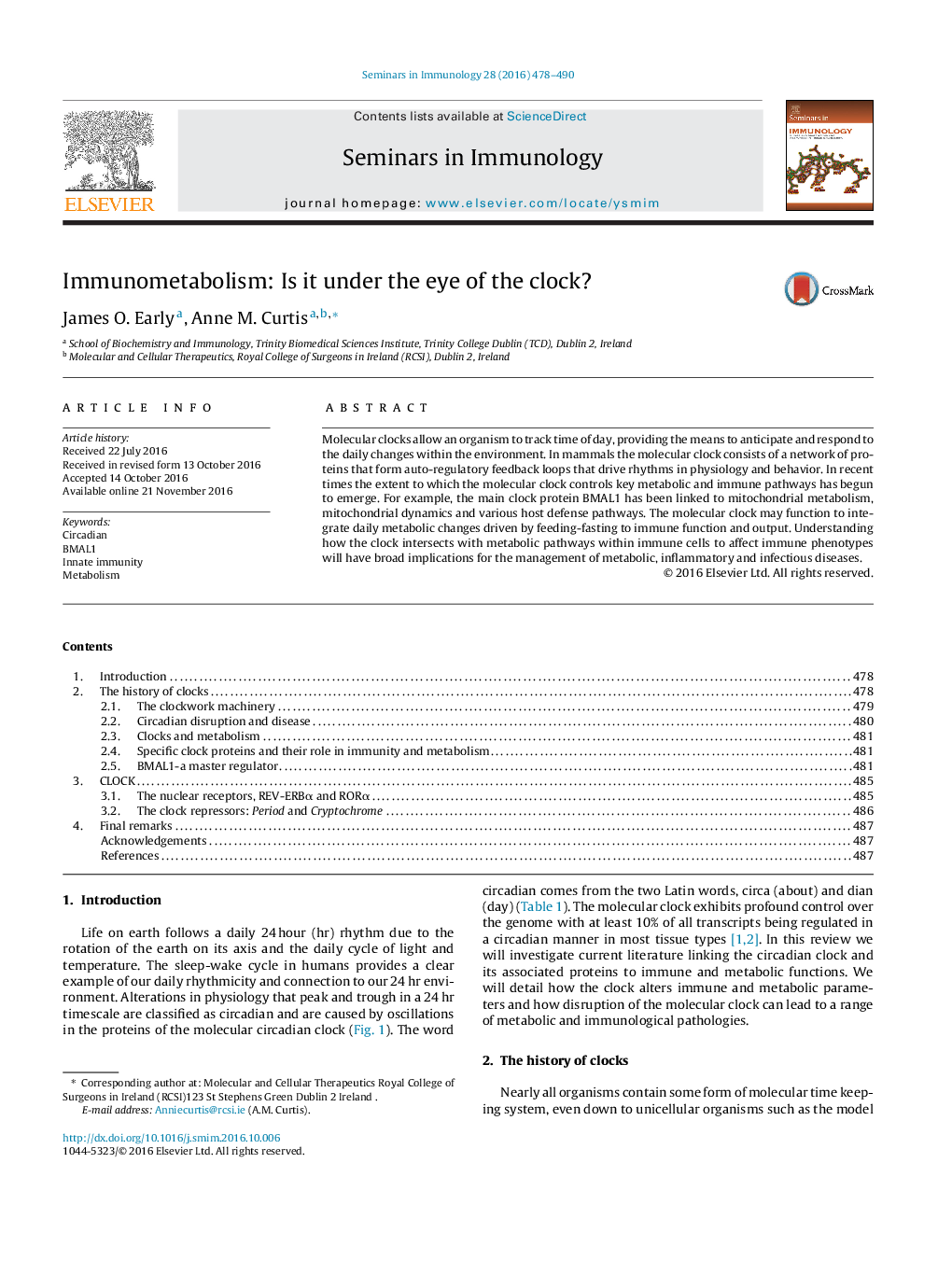| Article ID | Journal | Published Year | Pages | File Type |
|---|---|---|---|---|
| 5670392 | Seminars in Immunology | 2016 | 13 Pages |
â¢The circadian clock is a molecular clock within each of our cells, including immune cells.â¢The molecular clock keeps time by a series of interlocking positive and negative feedback loops. The transcription factor BMAL1 is the master clock controller.â¢The molecular clock has a profound effect on immune function, in particular innate immunity.â¢The molecular clock also controls a number of metabolic pathways including mitochondrial metabolism and fatty acid oxidation.â¢Bringing together the fields of circadian biology and immunometabolism may provide important insights into how and why the immune system is dependent on the molecular clock.
Molecular clocks allow an organism to track time of day, providing the means to anticipate and respond to the daily changes within the environment. In mammals the molecular clock consists of a network of proteins that form auto-regulatory feedback loops that drive rhythms in physiology and behavior. In recent times the extent to which the molecular clock controls key metabolic and immune pathways has begun to emerge. For example, the main clock protein BMAL1 has been linked to mitochondrial metabolism, mitochondrial dynamics and various host defense pathways. The molecular clock may function to integrate daily metabolic changes driven by feeding-fasting to immune function and output. Understanding how the clock intersects with metabolic pathways within immune cells to affect immune phenotypes will have broad implications for the management of metabolic, inflammatory and infectious diseases.
